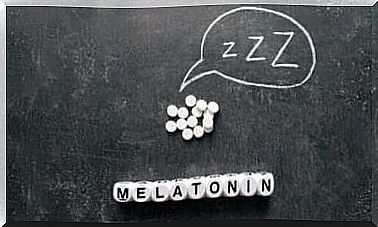Functions Of Minerals And Their Classification

Minerals play an important role in nutrition because these chemical elements maintain the normal functions of the body. They are, in fact, part of a number of important physiological processes required to perform normal functions. The human body is unable to make them itself despite the fact that they are vital to the body. For this reason, they must be obtained from the diet, mainly by consuming water, plant products and food of animal origin. In this article, we will discuss what minerals are, how they affect health, how they are classified, and what the functions of minerals are in the body.
What exactly are minerals?
Minerals are inorganic substances that are needed for the normal functioning of the body. About 4% of a person’s total weight is made up of these elements. However, the amount found in the body says nothing about their importance or functions.
Four of the main components – oxygen, hydrogen, carbon and nitrogen – are not included in these nutrients, but they cover 96% of body weight. The remaining 4% consists of macro- and microminerals, ie minerals and trace elements.
Unlike fats, carbohydrates and proteins, minerals are not called energy-giving nutrients. However, they play a vital regulatory role in many conventional functions. Lack of them can cause diseases and nutritional problems.

The functions of minerals in the human body
Minerals are needed for certain biochemical processes in the body. They also have some structural functions. Each has its own functions, but in general they can be summarized as follows:
- Minerals are a structural component of tissues such as teeth and bones. In addition, they are a basic component of cells.
- They are involved in maintaining acid-base balance.
- They ensure optimal fluid balance.
- They are involved in the transportation of gases.
- They are needed for muscle contraction.
- They are involved in the metabolism of other substances, such as fats and glucose, as well as energy storage.
- Microminerals, or trace elements, play a very important role as catalysts for enzymes. Of these, their effect on enzymes with antioxidant ability stands out in particular.
Potential health benefits
In addition to their functions, minerals have also aroused interest in the scientific community because of their potential disease-preventing benefits. Excess or deficiency of any mineral may be associated with an increased risk of chronic diseases.
Osteoporosis
Low calcium intake is associated with osteoporosis. It is not the only mineral that plays an important role in this sense, but it is needed for the normal formation of bones, especially in childhood and adolescence.
High blood pressure and heart health
Potassium is arguably one of the most important minerals in the diet for people with high blood pressure. Calcium and magnesium are also important as they have an inverse correlation with cardiac events.
The importance of diet is important as studies have questioned the effectiveness of supplements. Hence the recommendation to follow a DASH diet that is low in salt.
Functions of minerals: antioxidant effect
Oxidative stress can cause many adverse effects in the body, including degeneration and DNA and protein damage. To slow it down, the human body has special enzymes that have an antioxidant effect. These mechanisms include, for example, selenium, manganese, copper, and zinc.
Functions of minerals and their classification
As the Spanish Nutrition Foundation shows, these essential nutrients can be divided into two major categories: macro- and micro-minerals, ie minerals and trace elements. Each of these has equally important roles in the human body – their main difference lies in how much they are needed.
Essential minerals
Your body needs these at least 100 mg a day. The most important of these are calcium, phosphorus, sodium, potassium, chlorine, magnesium and sulfur.
Macromineral deficiency is one of the most common nutrient deficiencies. Deficiency in both women and men often affects calcium, which is poorly obtained after the age of 50. Its deficiency leads to serious long-term health problems such as osteoporosis.
Microminerals or trace elements
Trace elements are needed in smaller amounts than minerals. Trace elements that play an important biochemical role in the human body are iron, zinc, fluorine, selenium, copper, chromium, iodine, manganese and molybdenum.
Healthy people generally do not have trace element deficiencies when they follow a balanced diet (with the exception of iron, iodine, and zinc). Instead, trace elements can in some cases even be toxic, especially if they are eaten in large quantities over a long period of time.

Minerals have vital functions
Minerals are essential nutrients because they are involved in many basic body functions such as oxygen transport, tissue formation, hormone synthesis, and enzyme activity. They can be divided into two large groups based on how much they should get from food. They are all still equally important and are obtained exclusively from the diet.
A balanced and personalized diet provides all the daily minerals your body needs. In general, the best sources are vegetables, fish, dairy products, legumes and nuts.









